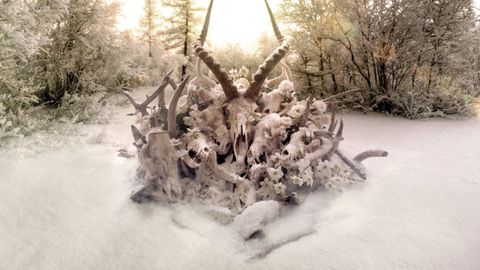Scarcity is an underrated concept in our age of the 24-hour availability of everything. In rock’n’roll, it still works like a charm: nothing builds a reputation like absence. King Animal is Soundgarden’s first studio record since 1996, and they return as titans of their era, one of the three pillars of the Seattle movement.
They are the least self-conscious of that founding trio: they do not have Kurt Cobain’s disdain for commerce, they do not share Pearl Jam’s desire to distance themselves from the whiff of arena rock. As such, they can go back to their legacy without baggage.
What they can’t do, though, is recreate the time in which their defining music was made, that heady rush of the new. Detached from it by the passing years, their publicly expressed trepidation at somehow reducing their importance and impact is not just paranoia or vanity. It has forced Soundgarden to examine exactly who they are, and what it is they want to say.
So, in the cold light of 2012, King Animal will not ruin them; it’s an intriguing, challenging, sometimes compelling album. Equally, it won’t stand as their masterpiece; it is a little too worked-upon for that. Their influences are worn proudly now. There’s a lot of Led Zeppelin’s throbbing Whole Lotta Love blues grooves to the opening Been Away Too Long and Non-State Actor. Next comes the mournful and druggy spaciness of Sabotage-era Black Sabbath on The Bones Of Birds and Taree.
Soundgarden’s essence lies somewhere between these two monolithic forebears, and there’s more to them than just influence. They flirt, brilliantly and tongue-in-cheek, with brainless stoner rock on A Thousand Days, and there is jet-black acoustic balladry for the first half of Black Saturday, and again on Halfway There.
Their trump card has always been Chris Cornell’s extraordinary voice, which still switches from urgency to desolation within a few bars, and with it comes his overall aesthetic, lyrical imagery that recurs throughout: blood, bones, fumes. These are touchstones of heavy metal that – in his hands, cradled by that furnace-intense flame of a vocal – become something more meaningful.
King Animal is the work of mature men, and one of the marks of maturity is doubt. The world reveals itself as a less certain place, and this is not the cocksure band of Big Dumb Sex or even Jesus Christ Pose. They have stuck to what they know will work, and it does.


